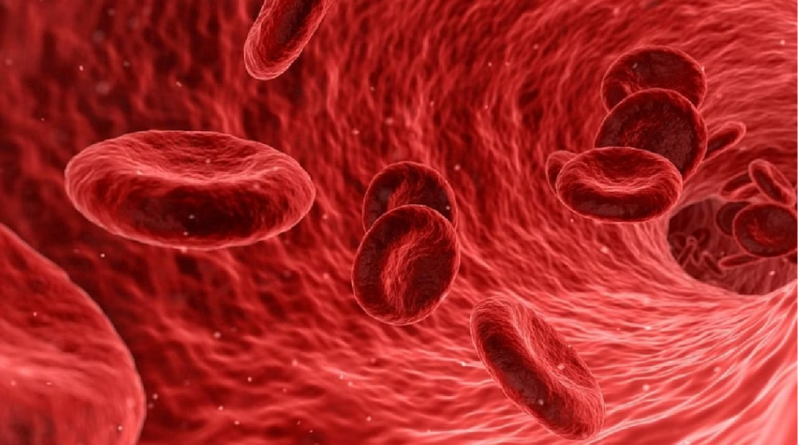RNA therapy may decrease spontaneous bleeding in haemophiliacs and “lower treatment burden.” 2023
According to experts from Christian Medical College (CMC), Vellore, Sanofi’s experimental RNA injections for haemophilia patients can help minimize spontaneous bleeding in patients. These findings were published in The Lancet and The Lancet Haematology journals on Thursday.
Haemophilia is a hereditary, lifelong bleeding illness that primarily affects men. Individuals with haemophilia A or B lack clotting factors or proteins in their blood that form blood clots, which are necessary for stopping bleeding.
Today, two randomised phase-3 controlled studies have demonstrated that these monthly preventative injections, known as ‘fitusiran,’ can minimize bleeding in people with haemophilia A or B.

Small interfering RNA (siRNA) treatments are a novel medication that inhibits the synthesis of certain proteins. Fitusiran is the first siRNA designed for the treatment of haemophilia. It targets antithrombin, a protein that inhibits blood clotting, in order to improve blood clotting capacity.
This preventive or prophylactic therapy aims to reduce spontaneous bleeding by providing medications that promote haemostasis, or normal blood clotting, on a regular basis.
“The result is intriguing and implies it may be the first preventative medication that works for both haemophilia A and B patients with inhibitors,” said Guy Young, professor at the University of Southern California Keck School of Medicine in the United States and main author of The Lancet research.
Antibodies called inhibitors hinder blood from clotting. As a result of the immune system’s reaction to traditional haemophilia therapies, some people acquire inhibitors.
The standard technique of therapy
When a blood artery is injured as a result of an injury, a sequence of chemical events are triggered, leading to the activation of clotting factors. Together, these substances generate a fibrin clot, a mesh-like structure that seals the injured blood artery to halt bleeding. There are thirteen distinct coagulation factors that contribute to the clotting process.
Nevertheless, people with haemophilia A or B lack clotting factors partially or entirely.
Inactive clotting factors are generated by the liver and circulate in the blood. In haemophilia, a lack or malfunction of one of the clotting factors causes defective blood coagulation and a propensity to bleed readily.
Regular injections of clotting factor concentrates are administered to patients with haemophilia in order to replace the missing or faulty clotting factor.
Nowadays, haemophilia patients who are administered replacement clotting factor might develop an immunological response against this medication. This immune response induces the production of inhibitors that render the replacement therapy ineffective, necessitating the development of alternative therapies that can circumvent this immunological response.
Injections of fitusiran might be the solution.
Lessening of treatment burden
Both studies are the outcome of the ATLAS international trials. The study published in The Lancet was undertaken in 12 nations, whereas the study published in The Lancet Haematology was conducted in 17 nations.
In the research published in The Lancet, 25 out of 38 (66%) people with inhibitors who had fitusiran injections had no bleeding after nine months, compared to 1 out of 19 (5%), who received an on-demand therapy.
The second research examined the usage of the medicine in individuals without inhibitors. Forty out of 79 (51%) subjects who had monthly injections of fitusiran reported no bleeding, compared to two out of forty (5%).
Fitusiran is provided via subcutaneous injections, which are simple to administer at home. According to Alok Srivastava, a professor at CMC Vellore and principal author of the study published in The Lancet Haematology, there is a significant reduction in treatment burden when this medicine is provided monthly or less often.
“Haemophilia patients might manage their illness with fewer hospital visits, which can be stressful and disruptive to everyday life. According to the study, this would lead to an improvement in life quality, Srivastava stated.
The medication has not yet been licensed for usage outside of clinical studies, however.
Adverse effects and long-term effectiveness
The authors emphasize that both trials had certain limitations. Patients were observed for nine months, therefore more research is required to prove longer-term effectiveness.
In addition, the participants in the studies had severe forms of haemophilia, therefore the outcomes for patients with lesser symptoms of the disorder may differ.
Young also observed that the trial’s safety outcomes require more monitoring.
“Two patients who received fitusiran suffered blood clotting, which is a risk associated with therapies that aim to restore haemostasis. “The most prevalent side effect was a rise in alanine aminotransferase, which occurs with many drugs and implies liver inflammation,” stated Young. Alanine aminotransferase is typically present in the liver and kidneys.
Although fitusiran did not result in long-term liver damage, the adverse consequences require continuing evaluation, according to the researchers.
“Regulators will need to evaluate the drug’s advantages and hazards before determining whether to allow its usage and for which patients it is appropriate,” added Young.


